If you're experiencing strange cravings for foods you've never even liked, or suddenly disgusted by your favourite meal pre-pregnancy, you are not alone. Food cravings and aversions during pregnancy are well documented and extremely common.
In some cases, they can be entirely random, but sometimes when we crave or are disgusted by certain foods, it is for a reason. Whether it’s chocolate, crisps or, erm, chalk, read on to understand your pregnancy cravings and how to manage them.
Cravings can be a way of our body asking for certain vitamins, nutrients and minerals that we may be lacking in. This means cravings can become heightened during pregnancy to ensure that the growing baby is getting the nutrients it needs.
You're probably tired, stressed and worst still, suffering from nausea or morning sickness. All of that means you really can't face spending time cooking the healthy meal packed full of superfoods and nutrients that you know you need.
Your body is crying out for broccoli while you cry out for a greasy takeaway, the list of foods you can't eat seems as long as your arm and you might have unexplainable cravings that are driving you mad. Despite all this it is important you maintain a healthy diet and eat the right foods for every stage of pregnancy.
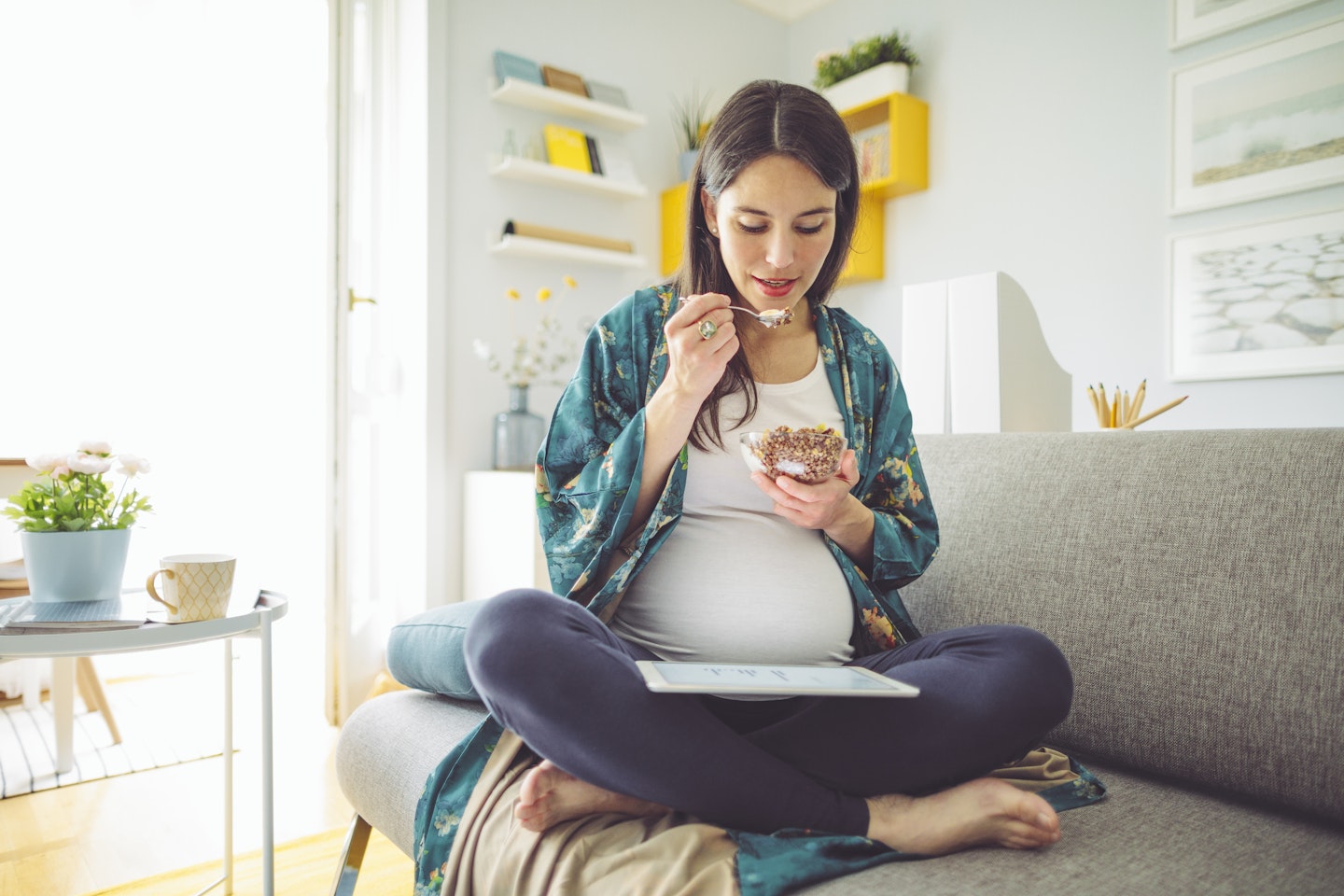
6 most common pregnancy cravings and what they mean:
Health and fitness app Lifesum polled its users to find out what ladies most commonly craved while pregnant. [Lovisa Nilsson, Lifesum’s in-house nutrition and fitness expert]{href='https://lifesum.com/' target='_blank' rel='noopener'}, helps explain the underlying causes of all those pregnancy cravings and also tells us how we can use exercise after birth to help shift post-baby weight if we have indulged in any of those not so healthy pregnancy cravings...
1.Coal

This might seem odd but it’s more common than you would think – 14% of Lifesum users saidthey craved coal. “When women crave non-food items during pregnancy, they could be suffering from a condition called Pica,” says Lovisa. “The reason that women suffer from Pica is unknown. However, it could be that their iron levels are low as coal is rick in this mineral, for example; when women crave chalk it is often because they need calcium to support the skeletal growth of the baby.”
2.Salty foods
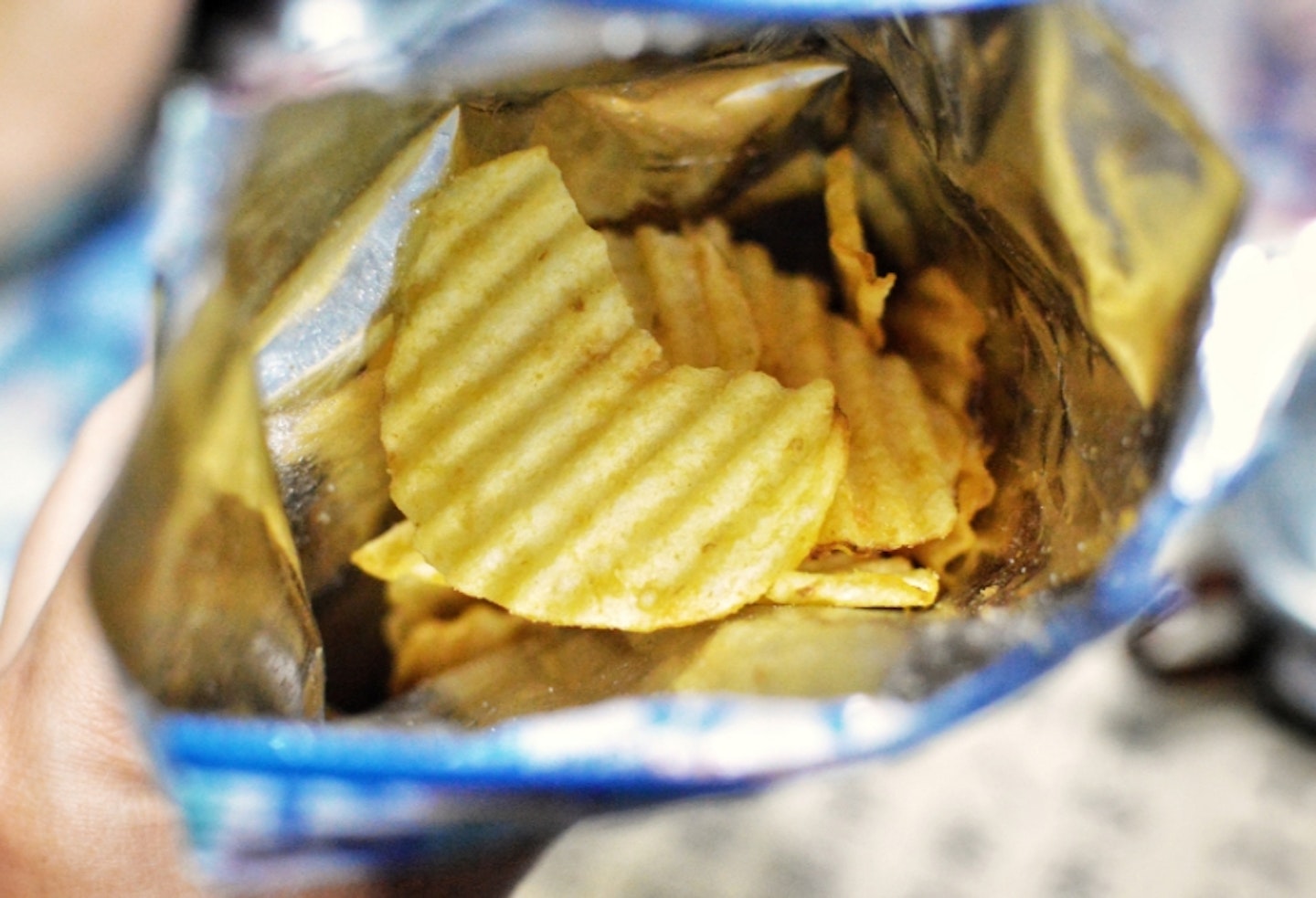
Salty foods such as crisps and gherkins were the most commonly desired, with 24% of users noting it as a craving.
“Craving salty foods, such as crisps or pickles, could mean that you’re low in sodium, but more often than not it can just be that you are desiring the taste of salty food. High levels of sodium can have negative effects on health, such as raising blood pressure, and so this is not a craving that you should succumb to too often,” says Lovisa. “Another common reason we reach for the salt is that we are dehydrated so ensure you are drinking a sufficient amount of water.”
3.Red meat
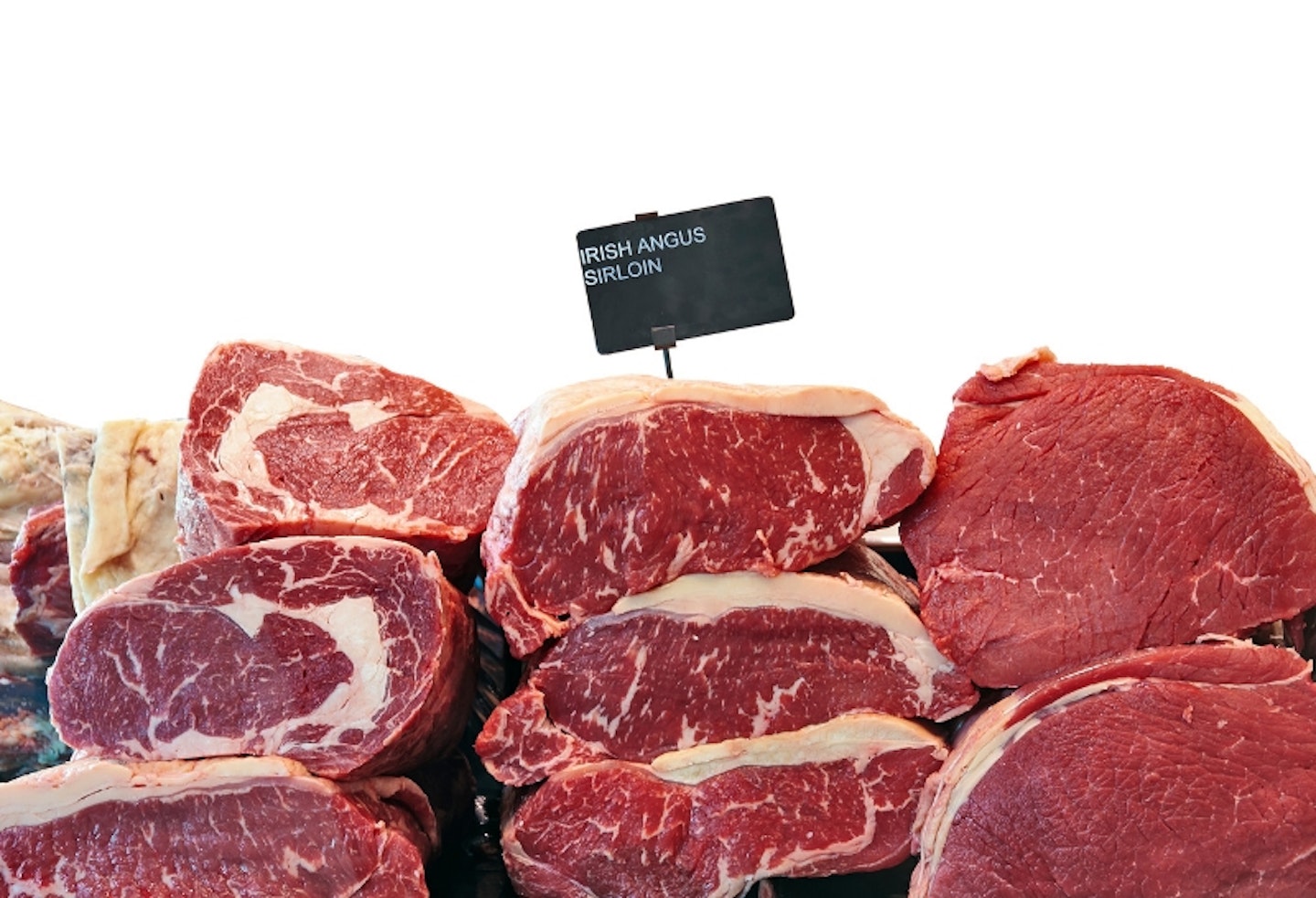
“Many women will crave red meat when pregnant as it is a source of protein and iron, both of which they can often be lacking.” Just like phoebe in friends, one user polled claimed to crave red meat despite actually being a vegetarian!
4.Citrus fruits
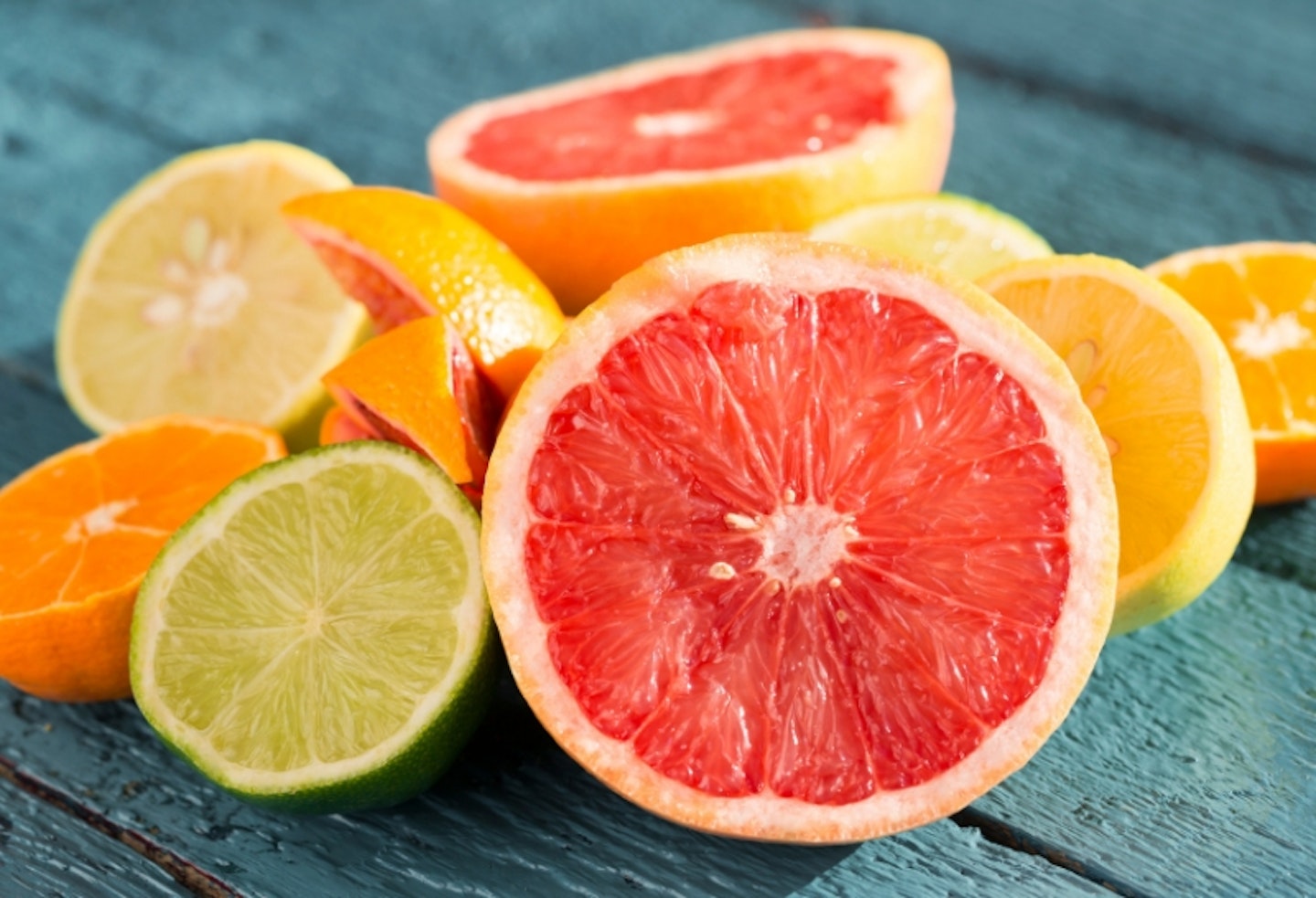
19% of users reported a craving for citrus fruits or sour foods and there is a simple reason why. “Women crave sour or spicy foods during pregnancy because of a change in the taste buds and they often like to shock them, which is why they reach out for tangy citrus fruits or sour sweets.”
5.Ice cream

The taste buds become more sensitive during pregnancy (which is why women can often develop an aversion to certain foods and also explains why indulgent foods become more tempting!) but a craving for ice cream or any other dairy product can indicate low levels of calcium.
“High levels of calcium are needed for the baby to remain healthy as it grows. As it can be difficult for women to stomach the strong smell of cheese or even milk during pregnancy, they’ll often turn to ice cream for their calcium fix,” explains Lovisa. “Additionally, pregnant women usually don’t want heavy cooked food and with its high fat and sugar content, ice cream is both light, cooling and provides fast energy.”
6.Chocolate
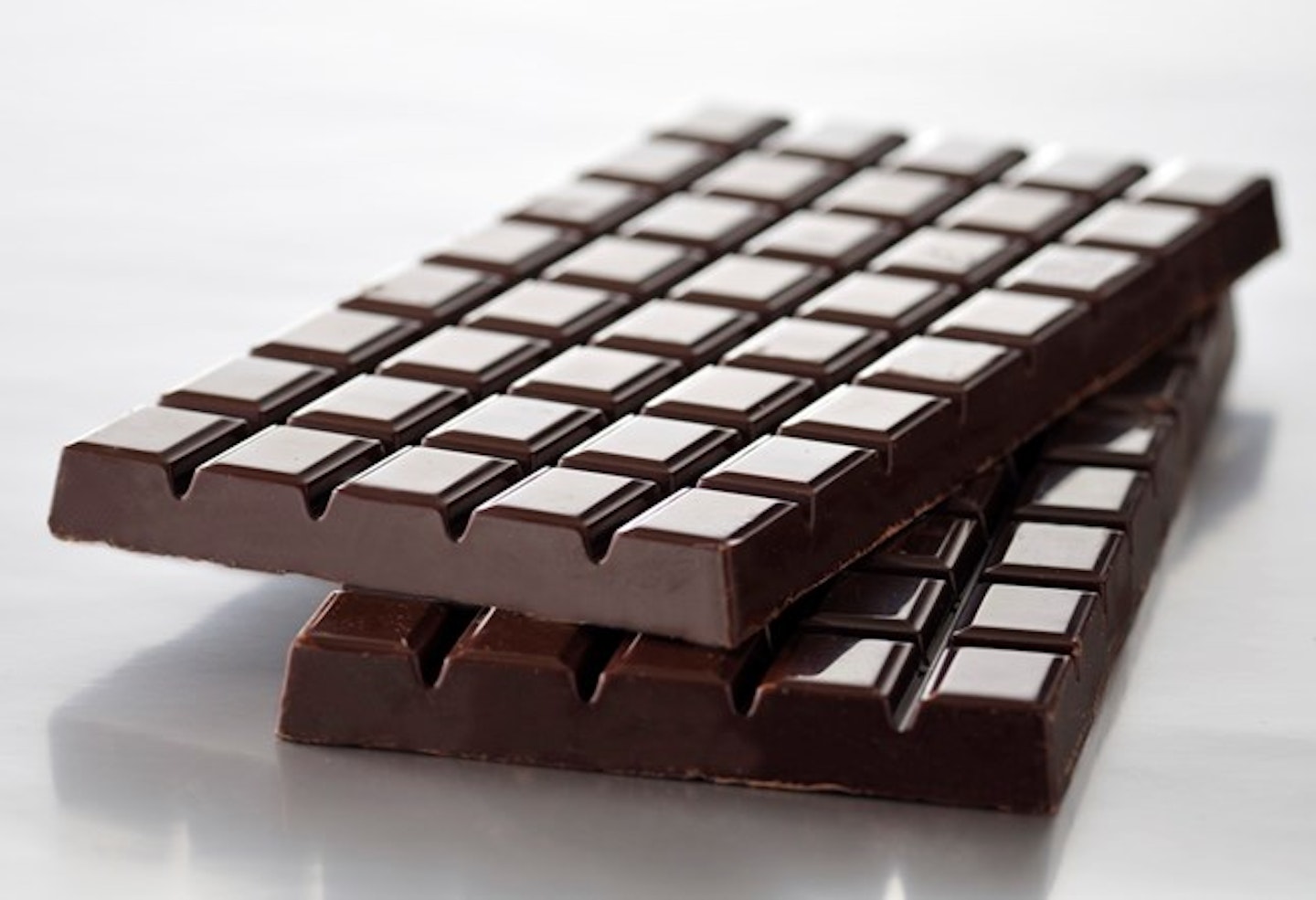
Like ice cream, chocolate is high in empty calories which provide fast energy, so it’s no surprise that 12% of Lifesum users claimed that they craved the sweet stuff during pregnancy. However, though chocolate is a comfort food, this craving could imply something else.
“Chocolate is rich in vitamin B so women who are lacking B vitamins sometimes crave it. However, studies have shown that you can get the same goodness from flaxseed oil, which is a healthier alternative even though it is probably the less tempting option! Craving sugary foods or sweets could also be caused by a drop in blood sugar.”
Other common cravings include avocado (lack of iron), sugar (low blood sugar), cheese and milk (low calcium levels). An insatiable craving for tomatoes or tomato products is known as tomatophagia. Tomatophagia may sometimes be associated with nutritional deficiencies, especially in pregnant women. It may also occur in people with iron deficiency anemia, even though raw tomatoes are low in iron. If you crave green apples, you may be deficient in pectin, potassium, or vitamin A. The list really does go on and on...
Weird pregnancy cravings
We asked our lovely #mumtribers what 'weird' things they've craved during their pregnancies... [their answers do not disappoint]{href='https://www.motherandbaby.com/pregnancy-and-birth/weird-pregnancy-cravings' }...
Super noodle sandwiches was one of our favourites, 'Chicken flavour super noodle sandwiches, but had to be white bread (I don't normally eat either)!' - Jacinta Wilmot.
Some of our favourite celeb mumshave also revealed their strange cravings, from sweet treats to mayonnaise sandwiches to er, soap. It seems when it comes to cravings, just about anything goes. Your body knows what it wants, and while it might not make much sense, you'll keep on craving.
Pregnant mum Hannah decided to get her family to eat the weird pregnancy foods she craves. Which combo would you refuse?
To make matters worse, there are certain foods and smells that cause your stomach to churn. Food aversions are common in pregnancy but they can change from person to person and nobody knows exactly why they happen at all.
When do food aversions/cravings start in pregnancy and why?
Food aversions and cravings are most likely to occur during early pregnancyin the first trimester. It is unclear what exactly causes these changes in taste. However, the hormones of pregnancy and the effect they have on the body is often presumed to be the cause. The pregnancy hormone human chorionic gonadotropin (hCG) is perhaps the most likely culprit.
HCG is the hormone that triggers a positive pregnancy test. HCG circulates the body and is discarded in the urine so pregnancy tests detect levels of it to determine the result. HCG is often blamed for morning sickness and nausea as it is at its highest levels when morning sickness occurs during the first trimester.
Pregnancy food aversions in the first trimester come alongside morning sickness, so, they are thought to be linked. This might be because both side effects are caused by hCG. Or, perhaps more likely, because you associate certain foods with any nausea and sickness you are suffering from. A 2016 study in the Journal of Food and Nutritionfound women did associate sickness with certain foods and subsequently developed specific aversions.

A heightened or more sensitive sense of smell might play a part, as foods with a strong aroma often trigger women to feel grossed out. Food aversions might even be our attempt to protect ourselves and our baby during pregnancy. Food aversions often mean you feel disgusted and research suggests that disgust is an emotion triggered as a way to avoid pathogens, defending us against infections. So, when we simply DO NOT WANT to smell or even look at a fried egg during pregnancy, that might be because we are trying to keep our baby safe from potentially harmful bacteria.
Some pregnancy cravings may be related to a desire to "cancel” out these undesired aversions (a sense of bitter that is a phantom smell or taste may be neutralised by ice cream, for example). This idea is supported by research that suggests that salt sensitivity is decreased during pregnancy and bitter sensitivity is increased.
It's also theoried that dopamine could be at fault, the “feel good” chemical. With hormones going haywaire we crave comfort foods, which raise our dopamine level and make us feel good.
When that level drops during pregnancy, women may be inclined to seek out foods that will raise it again. Suddenly, foods you haven’t thought about in years may dominate your lunchtime fantasies.
Aversions might stop after the first trimester or you could continue to experience them throughout every stage. For most women, aversions lessen or disappear after they give birth. But, if they are particularly extreme and the association is too strong, they could stick with you forever.
9 common pregnancy food aversions:

1) Spicy food
Pretty understandably, spicy food is often off the menu. Spicy food isn't everyone's cup of tea as it is, and it is more likely to upset your stomach and cause you toilet troubles. You are just protecting yourself from the inevitable!
2) Hot food
No, not spicy, but cooked, hot food can put pregnant women off. Sometimes this is because the smell is more intense than cold food. If hot food is the issue, try a crudites of raw veg or add a cooling salad to whatever you're munching on to make sure you are getting some goodness.
3) Meat
Red meat and chicken aversions are common. However, it is a weird one because protein is important for your baby and meat is packed full of protein-rich goodness. If this is the case for you, try and get your protein in other ways such as nuts and beans!
4) Eggs
Eggs are a great food during pregnancy because they contain lots of important nutrients and proteins. However, it's not surprising that a cooked egg, be it boiled or fried, with that strong sulphur smell could turn your stomach pretty easily.
5) Fried food
Fried food is off-putting because it is often strong smelling and greasy. But, if you're disgusted at the thought of fried food, rejoice! It really isn't good for you, so take advantage of this break from fatty foods and indulge in some fresh goodness instead. Your body will thank you later!
6) Fish and shellfish
This is probably all about smell. Raw fish doesn't have the loveliest aroma at the best of times. If your sense of smell is much more intense and sensitive then it's likely you'll be avoidingfresh seafood and fish.
7) Vegetables
This one really isn't ideal. Vegetables are so beneficial during pregnancy because they are packed full of nutrients and vitamins. Hopefully the whole food group isn't wiped out, so find the veggies you do enjoy and stick to them until you feel better.
8) Garlic
Have you found that you are suddenly a vampire, terrified of garlic? Garlic is pretty strong tasting and is a bit of a love it or hate it ingredient. No wonder some pregnant women are repulsed by it! Garlic is in so many recipes so if this is your aversion, we feel for you!
9) Onion
Onion is another pretty unavoidable food because it is the base for so many great sauces and recipes. Cooking onion slowly and for a long time will make it taste less intense. Although, if you're really put off by them then we recommend you use this excuse to force someone else to do the chopping and cooking for now!
Can food aversions predict your baby's gender?

There are several old wives tales and myths about baby gender predictions. Many people believe that your particular food aversions might hint at whether you're having a boy or a girl. Pregnancy food aversion gender discussion is common in parenting forums and mummy groups online. But, can food aversions really predict gender? Well, according to a small 2014 Polish study in the Journal of Physiology and Behavior, there is some truth behind this idea.
The study did not discuss specific food aversions or cravings. Instead, the researchers looked at how women experience disgust during pregnancy. The researchers found there was a link between disgust and gender. They discovered that:
changes in disgust sensitivity during pregnancy are related to the sex of a fetus
women carrying a son show higher disgust sensitivity in the first and second trimester
Apparently, male embryos are more vulnerable and women carrying sons display more disgust in response to certain things as a way to protect their precious little boy!
The most common theory is that if you're having a girl you'll be put off salty food (which is associated with having a boy) and if you're having a boy you'll be put off sweet things (which are associated with having a girl). We'll leave that up to you to find out!
